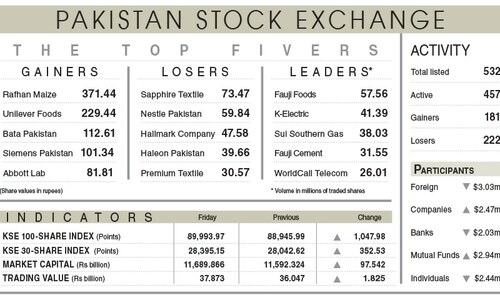KARACHI, Nov 5: Delay in harvesting of paddy has soared non-basmati rice prices to an unprecedented level, and now these have become out of the reach of low-income groups who mostly consume Irri-6, Irri-9 and 386 varieties.
However, divergent views are being expressed by the stakeholders who generally believe that primarily the price-hike was due to Indian government’s ban on export of non-Basmati rice, while others believe that prices have increased as middleman is holding back stocks.
Another cause of price surge in non-Basmati is stated to be late harvesting which is resulting in its short supply.
It is being stated that two floods caused by heavy monsoon rains at the initial period of paddy plantation damaged plants, and the growers had to repeat the exercise.
Nevertheless, presently prices of unprocessed non-Basmati have touched an unprecedented level, with Irri-6 being quoted at Rs20 per kg, Irri-9 at Rs27 and 386 at Rs36 by millers who sell it to processors for cleaning and polishing, from where it is sold to exporters and grain merchants.
Rice exporters are perturbed over the rapid rise in prices, but are even critical of the indifferent attitude of the authorities and regulators for not taking any notice of the ‘ugly’ development which would ultimately deprive poor masses of their staple diet.
Rice merchants believe that bulk exporters of ship-loads of Irri-6 rice are in deep crisis because they have booked huge orders for $295 (FOB Karachi) in anticipation of smooth supplies of coarse rice.
Presently world prices of coarse rice are being quoted at $350 per ton (FOB Karachi) which would cause a colossal loss of $325,000 per vessel of 12,500 tons.
Consequently, any move to ban exports or even fix minimum export price (MEP) would not help because huge funds available with middlemen with a capacity to hold the commodity for months was the root cause of price hike.
Similarly, there is another theory that in due time supply will improve and this will help contain soaring prices of non-basmati rice.
The delay in harvesting is restricting supply, which in turn is causing anxiety among exporters who started panic buying.
It is similar to cotton crop where hot weather is inhibiting balls to open up and turn into cotton fibre. As a result of this phenomenon, supply is slow which has caused panic among spinners.
President, Union of Small and Medium Enterprises (Unisame), Zulfikar Thaver, has demanded of the government to fix minimum export price (MEP) at $425 per ton as done by India to support the small and medium sized exporters.
This would also help big exporters to cancel their contracts by asking their buyers to at least meet the MEP set by the government if they want to ensure supplies, he added.
Unisame chief also called upon Tariq Ikram, minister of state and CEO TDAP, to convene a meeting of stakeholders to find a way out to the present quagmire.














































Dear visitor, the comments section is undergoing an overhaul and will return soon.